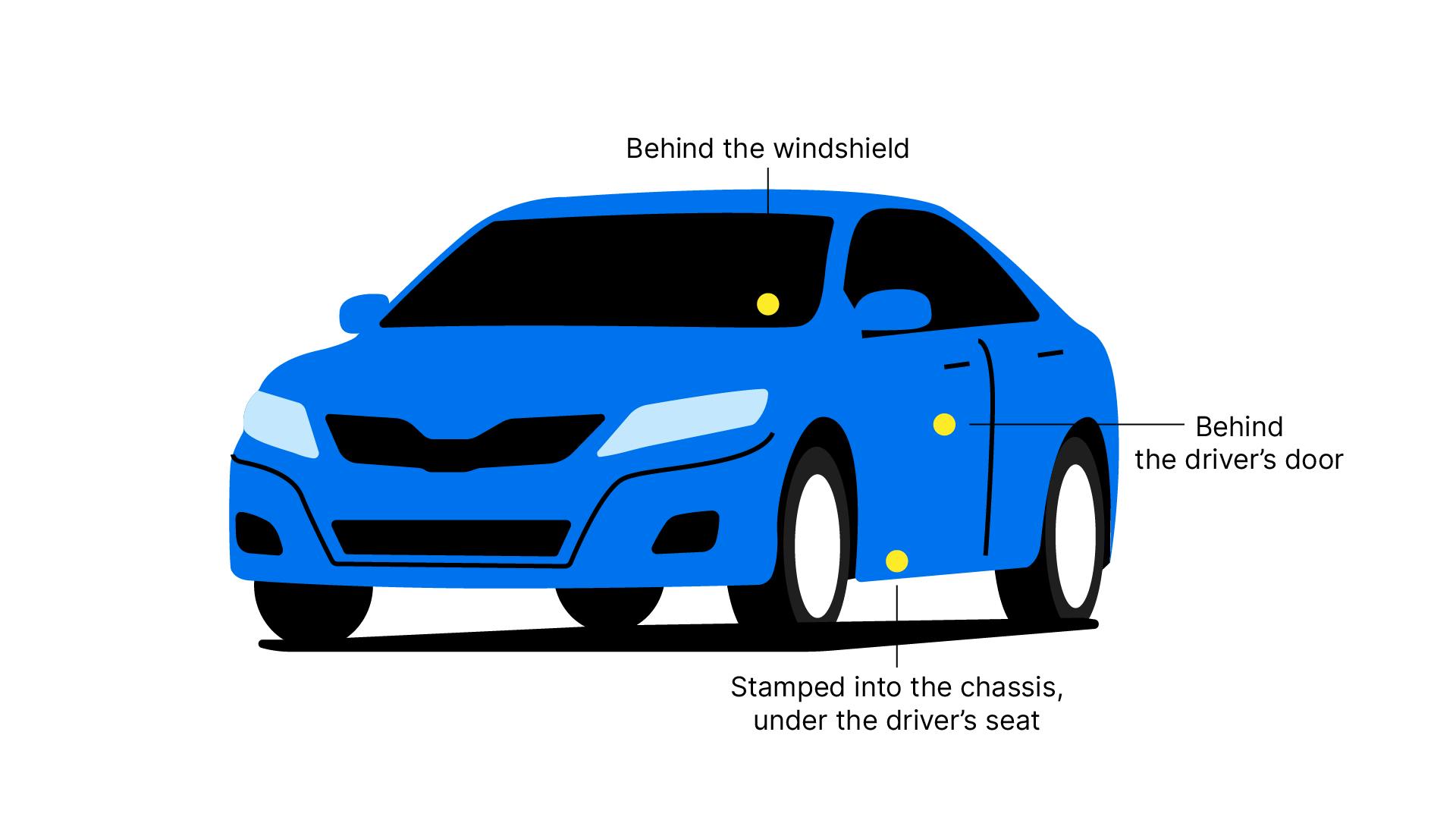Toyota VIN Decoder
Use the free digital Toyota VIN Decoder to check car specifications. Generate a vehicle history report with mileage, damages and other recorded car data.
Founded in 1937, Toyota Motor Corporation is known all over the world. In the 1930s, after The Great Depression and several earthquakes, Japan developed a huge demand for cars. The country began importing American vehicles, and Kiichiro Toyoda (the founder of Toyota Motor Corporation) found this as an opportunity to get into the car market.
He purchased some cars from Ford, Chevrolet, and Chrysler and took them apart to find out how to build and improve a vehicle. The company has gone through rough patches during WW2 and the 1973 oil crisis. However, eventually, Toyota became one of the most capable car brands in the world. Nowadays, Toyota owners praise these cars for affordability, reliability, and safety.
What is a Toyota VIN number?
Every Toyota vehicle has a unique combination of numbers and letters – it’s called a vehicle identification number (VIN). It works as a unique vehicle identifier, which helps to record various data about the vehicle. The VIN is essential to keep track of maintenance, claim insurance, and much more. Owners can even use it when searching for spare Toyota parts or checking the history of a used car.
All car manufacturers apply the same format when creating VIN numbers – a 17-character code consisting of coded brief data about the vehicle.
What does a Toyota VIN number contain?
Each Toyota VIN number consists of 17 characters, each of which has a coded meaning for equipment, brand, main features, model year, and other basic vehicle information. To make things simpler, it’s best to separate a Toyota car VIN number into four sections:
- World Manufacturer Identifier (WMI) – the first three characters reveal the manufacturer and country of origin.
- Vehicle Descriptor Section (VDS) – the five characters in this section describe the vehicle’s brand, engine, transmission, body style, series, etc.
- Check digit – this one digit offers mathematical proof that the VIN is legitimate.
- Vehicle Identification Section – the last piece contains eight characters, six of which form a unique serial number. Meanwhile, the other two reveal the model year and manufacturing plant.
Toyota VIN numbers only consist of numbers and capital letters. Also, you’ll never find letters "O", "I", and "Q" because these are never used due to visual similarities to numbers. Remember that you don’t need to decode VIN numbers manually – even a free Toyota VIN decoder can do that for you.
Where to find the Toyota VIN number?

One of the reasons the VIN numbers on cars are placed in multiple locations is to avoid scams. Used car sellers often try to sell cars welded from separate pieces. Here’s where you can find your Toyota VIN number:
- Behind the windshield
- Behind the driver’s door
- Stamped into the chassis, under the driver’s seat
- Registration and insurance documents
A VIN code can be stamped into a chassis, a metal plate, or just printed on a sticker in a Toyota car. Remember that the number must be the same in every spot. All characters should align perfectly, so any sign of tampering is a risk of legal issues tied to that Toyota vehicle.
What Toyota models work with our VIN decoder?
Our Toyota VIN decoder recognizes 17-character VIN codes. While the first vehicle identification number was used in the 1950s, the current format was accepted in the 1980s, meaning that any later model is eligible for a VIN decode. You can check all current Toyota models with our VIN decoder, including:
- Compact models: Prius, Auris, Yaris, and Corolla. Saloons Avensis, Camry, Mirai, Avalon
- Crossovers, SUVs, and trucks: C-HR, bZ4X, RAV4, Highlander, Land Cruiser, Hilux, Tundra, Tacoma
- Commercial vehicles: Proace, Proace City, Proace Verso
- Sporty models: GR86, GT86, Supra, and many more
Toyota history check: what can you learn with the Toyota VIN number?
The VIN number is used to record failed and passed MOTs, register thefts, title changes, fill insurance claims, and so on. Therefore, you can get a full history report, which will reveal all that data. Here’s what you can find out with the help of the Toyota VIN number:
- Activity – registration, owner changes, MOTs, etc.
- Mileage records – see how the mileage has changed during the car’s lifespan. You’ll be warned about possible mileage fraud.
- Accidents – details about past accidents, including dates, damaged parts, and repair costs.
- Historical photos – photographs from auctions, insurance companies, and other sources reveal many essential details about the car’s history.
- Maintenance records – find out when was the last time the car was serviced.
This is far from all of the data a full vehicle history report offers. Used car sellers benefit more from people who don’t know the car’s actual condition. Always take the vehicle for an inspection and do a VIN lookup. Even if you’d be okay with discovered issues, negotiations will be much easier if you’re aware of them.
Car history report
Avoid costly problems by checking a car's history. Just enter the VIN and get a full report.
Trusted by over 1,800,000 people across 28 countries